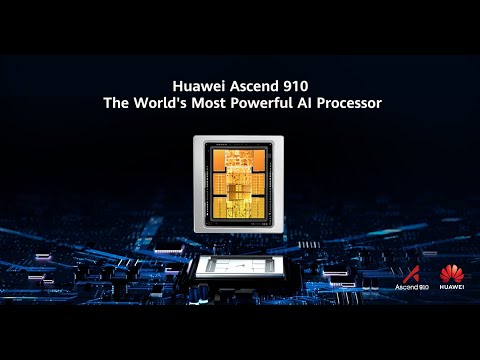Huawei already has a new chip to rival Nvidia's AI GPUs — Ascend 910C aims to replace Nvidia's Blackwell in China
The third version of a 2020 design?

Huawei is prepping its Ascend 910C, another AI chip aimed at the Chinese market and designed to compete against Nvidia's offerings, such as the existing HGX H20 and the upcoming rumored Blackwell-based B20. According to the Wall Street Journal, the company has already provided samples of the new chip to its partners among Chinese telecommunications operators.
Major Chinese companies, including Baidu, ByteDance, and China Mobile, have tested Huawei's Ascend 910C. According to Huawei, the device is on par with Nvidia's H100, but it is unclear which benchmark terms the Ascend 910C is comparable to Nvidia's previous-generation flagship product. Dylan Patel, an analyst with research firm SemiAnalysis, believes that Huawei's 910C represents a significant advancement and could outperform Nvidia's B20, but he did not provide details.
The potential demand for the Ascend 910C is substantial, and preliminary talks suggest that orders could surpass 70,000 units, worth around $2 billion, according to WSJ. Huawei targets starting shipments in October, but the final order quantities and delivery schedules remain uncertain.
Earlier this year, Dylan Patel estimated that Huawei could sell about 550,000 of its Ascend 910B in 2024, less than about a million of Nvidia's HGX H20 but still a sizeable number. However, according to rumors, the Ascend 910B was plagued by defects, making it hard for Huawei to achieve its shipment targets. Assuming that the chatter is correct, then one of the design goals of the Ascend 910B could be improving yields (by employing different design libraries and/or by relaxing specific design rules, akin to what Huawei did with the Kirin 9010) and then improving performance.
Despite this progress, Huawei is grappling with production challenges. The company has experienced delays with its products allegedly made by SMIC, partly due to existing U.S. sanctions restricting access to advanced manufacturing tools. Huawei is also reportedly preparing for additional U.S. restrictions, which could curb shipments of high-bandwidth memory (HBM) to China (so the company is reportedly stockpiling HBM2E). The company is also instructing its contract chipmaker to increase tool parts and raw materials reserves as future U.S. sanctions might disrupt its supply chain.
While constrained by export controls, Nvidia continues to sell downgraded versions of its AI GPUs, such as the HGX H20, to Chinese customers. However, these GPUs are less potent than what is available in other markets, which leaves many Chinese clients unsatisfied as this limits their international competitive positions. Huawei's new Ascend 910C could fill this gap if it can meet production targets.
The rivalry between Huawei and Nvidia in the Chinese market is heating up. If Huawei can ramp up production of the Ascend 910C without further hindrances, Nvidia could quickly lose its competitive edge in China, where it has already seen reduced demand for its less powerful GPUs. To avoid this, Nvidia continues to develop GPUs specifically designed to comply with U.S. export rules, such as the upcoming B20. However, it remains uncertain whether this chip will gain approval for export to China as it will have to be more potent than the HGX H20.
Stay On the Cutting Edge: Get the Tom's Hardware Newsletter
Get Tom's Hardware's best news and in-depth reviews, straight to your inbox.

Anton Shilov is a contributing writer at Tom’s Hardware. Over the past couple of decades, he has covered everything from CPUs and GPUs to supercomputers and from modern process technologies and latest fab tools to high-tech industry trends.